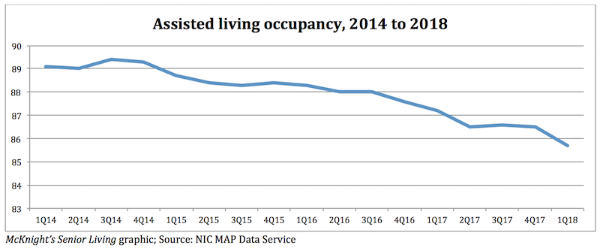The Caregiver’s Voice features five curated-article excerpts this month, including tips for caregivers, declining assisted living numbers, women’s finances in retirement, and loss of privacy balanced against convenient access to information. Click on titles for more information.
Women Have a Different Journey to Financial Wellness than Men
[TCV Update 4/18/2022: Message from Bank of America: We’re sorry, the Merrill Lynch page you’re trying to reach is not available.]
A Merrill Lynch study found that 70 percent of women believe men and women have different financial-life journeys. Forty-one percent of women wished they had invested more of their money. Women experience the permanent effect of taking “time away from the workforce to provide care” for aging parents, spouses, and/or their children. On average, women in retirement will likely have higher health costs – an additional $195,000 – “due to living longer and having to rely on formal long-term care in later years.”
Changing Care for Caregivers
Some of us may be surprised by the need to address what we consider to be obvious. Yet, if we keep shining the light on these issues, we help raise awareness.
Canada-based The Change Foundation, a think tank with the aim of finding ways to improve care and experience in Ontario’s health care system has asked people what would make better partnerships between families and healthcare and community services providers serving those who need care.
Caregivers want to be recognized for the important role they play, included in discussions and decisions about their family member and treated as a partner in their care.
Read the other three. We should expect these kinds of partnerships, and here’s one organization that’s raising awareness of the need to do so.
[UPDATE: 1/25/2022: Article link unavailable with note: The Change Foundation has concluded its 25-year journey.]
Google Sells the Future Powered by Your Personal Data
I remember the pre-9/11 days… We citizens of the United States cried foul each time the government looked for a way to take away our privacy. We had zero tolerance for the world depicted in George Orwell’s 1984, where the public was manipulated and government surveillance was the norm.
Then 9/11 happened. Everything changed. Cameras are everywhere – inside and out. TSA screens our innards as we move through airport security. If you’re online (you likely are if you’re reading this), Google has been offering services for free as it mines data. Years ago, the unassuming public used Google’s free 411 directory calls, while millions of voice requests were used to perfect Google’s voice-recognition software.
Free is NOT free.
While Google offers many conveniences, I struggle to cling onto some level of privacy. Even incognito browsing is not private. It simply does not record your browsing history, but the sites you visit, still know. Nearly 50 years ago, I had to wait until my neighborhood library was open in order to find the answer to a question. Today, at any hour of the day or night, if I want to know something, “I Google it.”
Still, I can’t let go of the idea of the Borg. Star Trek introduced us to the “hive” or “the collective” that uses AI (artificial intelligence) to rule the universe. When I mention “Borg” to Google employees, there denial or silence. They look away. And yet, Tesla’s Elon Musk, even fears where AI may lead.
Ask the Experts: Tips Every Caregiver Should Know
[TCV Update 11/21/2022: URL to server cannot be found.]
Advice for caregivers that never grows old.
Remember to ask for help, meet your care recipient where they’re at, take a respite for self-care (even a car won’t run far on fumes), and more.
Assisted living occupancy hits a record low.
Assisted living occupancy reached a record low in the first quarter of 2018, according to the Maryland-based National Investment Center for Seniors Housing & Care (NIC). However, independent living numbers are rising.









